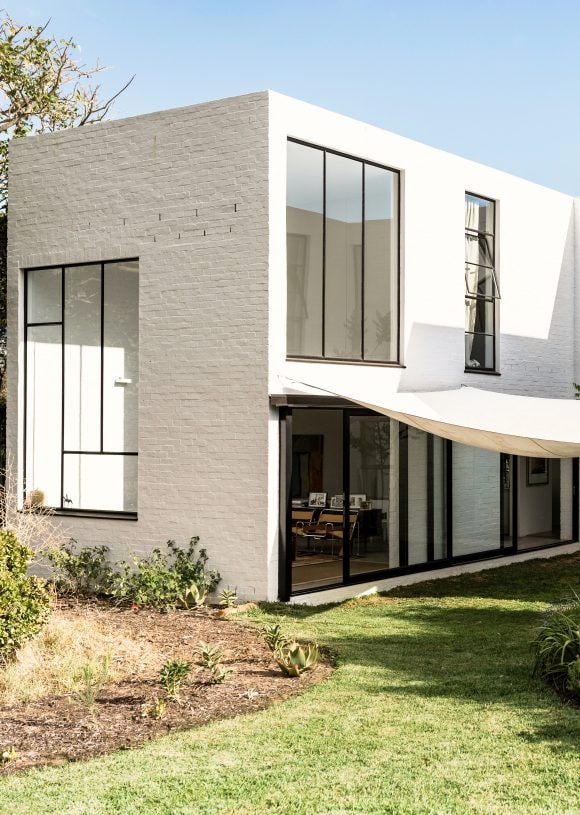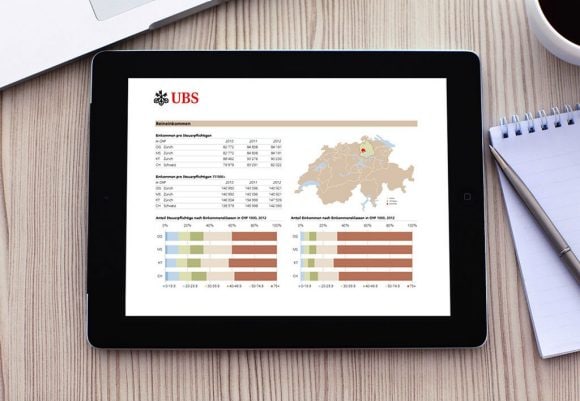We’re here for you
Arrange an appointment for a non-binding consultation or if you have any questions, just give us a call.

![]()
header.search.error
Taxes on real estate
Real estate capital gains tax is due when real estate properties are sold as private assets. How is it calculated? Who has to pay? What should you watch out for?
Content:

Real estate capital gains tax is payable when profit is made from the sale of a property. The tax is due on the difference between the purchase price and the sales price. Real estate capital gains tax is calculated not only on the basis of the tax rate of the particular canton, but also according to the duration of ownership. The amount must be paid by the seller of the property.
Real estate capital gains tax is payable whenever the proceeds from the sale of a property exceed the investment value. The investment value is usually based on the purchase price paid by the previous owner when they bought the property. Some cantons switch to a replacement value after a certain period of ownership (e.g. more than 20 years). As a rule, this corresponds to the value applicable at the beginning of this period.
The purchase price can be seen from the original sales contract. Value-enhancing investments such as a garage or insulation are then added to this figure, as well as any transaction costs, such as real estate agent’s fees.
Real estate capital gains tax is collected by the cantons, which means that there are considerable differences, both in the tax rates and in the tax structure. In many cantons, the tax is progressive. The tax burden therefore increases disproportionately in relation to the profit. In most cases, the longer the property has been owned, the lower the real estate capital gains tax.
In the canton of Zurich, for example, the first 5,000 francs are tax-free. The cantonal tax office grants a discount of 5% for sales after 5 years, 8% after 6 years, 11% after 7 years and 50% after 20 years or more (maximum deduction). It applies a surcharge of 50% for properties resold within one year and a surcharge of 25% for those resold within two years.
Real estate capital gains tax must be paid by the seller of a property. It is a real estate tax. If the seller has moved abroad or cannot be held liable for the tax payment for another reason, the canton has the right to seize the property. In this case, the buyers run the risk of having to pay the real estate capital gains tax themselves.
Some want to handle the sale themselves, while others prefer to delegate it to professionals. Whatever type you are, we can provide you with exactly as much support as you need.
There is only one way for buyers to protect themselves from having to pay the tax – and that is to obtain a guarantee that the real estate capital gains tax has been paid. This must be explicitly mentioned in the sales contract. One possible solution would be for the seller to deposit the expected tax amount with the municipality beforehand, for example. To do this, you must contact the municipality in advance to check how much tax will be due.
Imagine that a house worth 1 million francs is being sold, and that the buyer has agreed to take on the mortgage of 600,000 francs. The sales contract could specify that the buyer will pay 50,000 francs directly to the tax authorities to guarantee the payment of the real estate capital gains tax. They would then transfer the remaining sum of 350,000 francs to the seller.
Are there any allowances or exceptions?
Some cantons waive the tax if it is less than 100 francs. Other cantons grant a considerable tax exemption. In Lucerne, for example, there is an exemption of 13,000 francs.
In principle, the tax becomes due when the transfer of ownership is recorded in the land register. Under certain circumstances, however, payment can be deferred, e.g. in connection with an inheritance, gift or anticipatory succession.
In some cases, the deferral is equivalent to a waiver of the real estate capital gains tax. This is the case if you buy a new home from the real estate capital gains and continue living there for the rest of your life. This is a “replacement purchase.” However, the replacement property must usually be acquired within two years.
Reasons for deferral:
How can real estate capital gains tax be reduced?
There is little leeway when it comes to real estate capital gains tax. However, the real estate capital gains, and hence the tax burden, can be reduced by offsetting value-enhancing expenses and transaction costs.
Factors that reduce the tax burden:
How does real estate capital gains tax differ from canton to canton in Switzerland?
Real estate capital gains tax can vary considerably depending on the canton.
Canton | Canton | Tax rates | Tax rates |
|---|---|---|---|
Canton | Aargau | Tax rates | From 40% in the first year of ownership down to 5% in the 25th year of ownership. |
Canton | Appenzell Ausserrhoden | Tax rates | 30%. From the tenth year, there is a reduction of 2.5% per year up to a tax reduction of 50%. Not levied for amounts under 3,000 francs. |
Canton | Appenzell Innerrhoden | Tax rates | Increases from 10% to 40% depending on the amount of profit. Decreases according to the duration of ownership, up to a tax reduction of 50%. Not levied for amounts under 4,000 francs. |
Canton | Basel-Landschaft | Tax rates | Increases from 3% to 25% depending on the amount of profit. If the property was owned for 20 years or more, the tax is reduced by between 5,000 and 50,000 francs. |
Canton | Basel-Stadt | Tax rates | 60%. After three years, the tax rate decreases by 0.5% per month. 30% from the ninth year of ownership. |
Canton | Bern | Tax rates | Increases from 1.4% to 8.1% depending on the amount of profit. The tax reduction is 2% from the fifth year of ownership. Maximum possible reduction of 70%. |
Canton | Fribourg | Tax rates | From 35.2% (up to 2 years of ownership) down to 16% (more than 15 years of ownership). Not levied for amounts under 6,000 francs. |
Canton | Geneva | Tax rates | From 50% (up to 2 years) down to 10% (25 years). 0% from 25 years. |
Canton | Glarus | Tax rates | 10% to 30% depending on the amount of profit. Decreases according to the duration of ownership. Not levied for amounts under 5,000 francs. |
Canton | Grisons | Tax rates | 5% to 25% depending on the amount of profit. 15% from 191,000 francs. Decreases according to the duration of ownership. Not levied for amounts under 4,200 francs. |
Canton | Jura | Tax rates | 3.5% to 6% depending on the amount of profit. Decreases according to the duration of ownership. Not levied for amounts under 4,000 francs. |
Canton | Lucerne | Tax rates | Calculated according to the progressive income tax rate. Tax-free up to 13,000 francs. |
Canton | Neuchâtel | Tax rates | 10% to 30% depending on the amount of profit. |
Canton | Nidwalden | Tax rates | From 36% (from 1 year of ownership) down to 12% (for ownership of over 30 years). |
Canton | Obwalden | Tax rates | 1.8%. No tax reduction according to the duration of ownership. Not levied for amounts under 5,000 francs. |
Canton | Schaffhausen | Tax rates | 2% to 15%. Decreases after 6 years of ownership. Tax-free up to 5,000 francs. |
Canton | Schwyz | Tax rates | 8% to 30% depending on the amount of profit. Increases or decreases depending on the duration of ownership. |
Canton | Solothurn | Tax rates | Corresponds to the income tax rate. Reduction according to the duration of ownership. Tax-free up to 10,000 francs. |
Canton | St. Gallen | Tax rates | In line with the income tax rate. A multiplication factor applies. Tax-free up to 2,200 francs. |
Canton | Thurgau | Tax rates | 40% of the taxable profit. Reduction according to the duration of ownership. |
Canton | Ticino | Tax rates | From 31% (up to 1 year of ownership) down to 4% (more than 30 years of ownership). |
Canton | Uri | Tax rates | 4% to 35% depending on the amount of profit. Tax-free up to 7,000 francs. |
Canton | Valais | Tax rates | 12% to 24% depending on the amount of profit. From the 6th year of ownership, reduction of 4% per year. |
Canton | Vaud | Tax rates | From 30% (ownership of up to 1 year) down to 7% (ownership of 24 years or more). |
Canton | Zug | Tax rates | 10% to 60% depending on the calculated returns. Reduction according to the duration of ownership. Tax-free up to 5,000francs. |
Canton | Zurich | Tax rates | 10% to 40% depending on the amount of profit. The tax rate is reduced by a percentage of between 5% and 50% depending on the duration of ownership. Tax-free up to 5,000 francs. |
What documents and information are required to declare real estate capital gains tax?
To determine the amount of real estate capital gains tax due, the investment costs (purchase price plus value-enhancing expenses) are deducted from the sales price. You will need to produce up-to-date documents showing the sales price and transaction costs, as well as older documents detailing the costs of the purchase and construction of the property. The main documents required are as follows:
Current evidence:
Older documents:

The facts about your preferred municipality
Do you want to understand how property prices or population levels have changed in a municipality? Or how the location is perceived in general? How high are taxes? The UBS municipality guide is free of charge and answers all your questions.
There is virtually no way to avoid real estate capital gains tax. There is only limited leeway in the tax structure. An inheritance or replacement purchase are the only reasons for deferring the payment of the tax.
Anyone purchasing property should ensure that a guarantee of the payment of the real estate capital gains tax is included in the sales contract. This is the only way to ensure that the seller actually pays the real estate capital gains tax, to prevent it from being passed on to the buyer instead.
Arrange an appointment for a non-binding consultation or if you have any questions, just give us a call.
Disclaimer